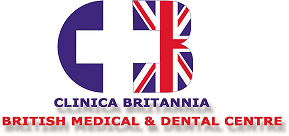Ischemic heart disease in elders
Ischemic heart disease in elders and its effects on their overall health. Ischemic heart disease is a condition in which the inner wall of the heart becomes severely damaged by lack of blood supply. The most common type of ischemic heart disease is coronary artery disease, which accounts for more than half of all cases. Coronary artery disease is the result of plaque build-up along the inner wall of the arteries. Heart failure is another common form of ischemic heart disease, as scarred and weakened valves fail to pump enough blood through the arteries. In addition to causing death, ischemic heart disease can cause major health problems such as heart arrhythmia and increased blood pressure.
Ischemic heart disease over time
Development of ischemic heart disease typically begins with a buildup of fluid in the arteries. The heart pumps blood through arteries to all parts of the body at a rapid pace. When blood flow stops, the body’s tissues become deprived of oxygen and nutrients. As a result, cells die and organs become malformed. Over time, ischemic heart disease can lead to death if not treated effectively. Generally speaking, treatment for premature death due to ischemic heart disease includes an angioplasty procedure or stenting in patients who have one or two blocked arteries. However, people with high risk factors such as cigarette smoking or diabetes often experience a poor prognosis and are unable to receive any treatment at all.
Ischemic heart disease in elders
Physical and mental health can be adversely affected by ischemic heart disease. Elderly people are at a high risk for developing both physical and mental health issues related to heart disease. Physical problems caused by ischemic heart disease include chest pain, shortness of breath, fatigue, dizziness and tremors. Mental health problems include depressed moods, memory impairment, confusion and cognitive decline. It’s important for elders with either physical or mental health issues to seek medical help promptly when experiencing symptoms. In addition, it’s crucial that caregivers keep their elderly loved ones safe when they are home from medical facilities late at night. Ischemic heart disease kills more than 200 people every day in the U.S.; however, it remains underdiagnosed and undertreated in both children and elders alike.
Ischemic heart disease does and don´t
It’s important for healthcare providers and caregivers to provide regular cardiovascular checkups for adults over the age of 60 so that issues like ischemic heart disease can be detected early on. This will allow individuals to stay healthy enough to live independently while receiving proper treatment for their condition. It’s also vital that adults with risk factors like high cholesterol or hypertension get annual checkups so that any issues can be promptly treated before they become fatal conditions. Ischemic heart disease can affect anyone, but it becomes far more likely in older adults who have already had age-related physical disabilities baked into their health from prior bouts with age-related illness and disability themselves.

